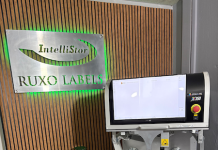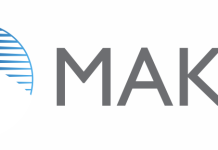OKI aims to prevent global warming and contribute to the achievement of Sustainable Development Goals (SDGs) (1) by promoting integration of management and the environment and taking advantage of the collective strength of the group.
Addressing global environmental problems is closely tied to sustainable corporate growth. More and more emphasis is being placed on corporate management that is conscious of social issues including environmental problems, such as the 2015 Paris Agreement, acceleration of global environmental initiatives, and the expansion of environmental, social and governance (ESG) investing (2).
With the OKI Environmental Challenge 2030/2050, OKI will engage in innovative and creative activities with a wide range of partners to prevent global warming and aims to achieve a 40% reduction in life-cycle CO2 emissions (3) by fiscal 2030 and an 80% reduction by fiscal 2050 (compared to fiscal 2013 respectively).
To contribute to the achievement of SDGs, OKI will create innovative products and services and deliver solutions that contribute to solving various environmental issues. Additionally, within the supply chain, including workplaces, OKI will promote the achievement of innovative ‘Mono-zukuri’ (having the spirit and mindset to innovate, create and improve products) and ‘Koto-zukuri’ (working together, proactively seeking opportunities that deliver value to customers).
Furthermore, looking ahead to 2050, the group will promote innovation of products and services that contribute to solving environmental issues, including preventing global warming and adapting to climate change, as well as development and sales of such products and services. Through these activities, OKI will contribute to the achievement of a sustainable society.
Since its founding in 1881, OKI has engaged in business to contribute to solving social issues. In recent years, the group has pursued business opportunities and promoted innovation by solving social issues, starting from SDGs. Taking a medium- to long-term stance, OKI Environmental Challenge 2030/2050 was established to accelerate those efforts. Through this initiative, OKI will continue its journey as a corporate group that supports safer and more convenient social infrastructure.
OKI Environmental Challenge 2030/2050
Promote fusion of environmental and management concerns, leverage OKI’s comprehensive capabilities to develop and support safer and more convenient social infrastructure, and help achieve SDGs.
I. Towards 2030
Prevention of global warming (SDGs 7/11)
With regard to life-cycle CO2 emissions, carry out activities to generate innovation with wide range of partners, achieve reduction of 40% by 2030 (on FY2013 basis). Contribution to achieving SDGs (SDGs 3/6/7/9/11/12/13/14)
Through (i), (ii) below, contribute to achieving the targeted reductions in environmental impact set out by SDGs.
(i) Generate innovative products and services and provide solutions conducive to resolving a wide range of environmental issues.
(ii) Realise innovative technologies for manufacturing and creating things in the supply chain, including workplaces.
II. Towards 2050
Prevention of global warming
With regard to life-cycle CO2 emissions, achieve reduction of 80% by 2050 (on FY2013 basis).
Contribute to realisation of a sustainable society
Work to develop, provide and promote innovative products and services that assist in preventing global warming, as well as in resolving other environmental issues, so as to support social infrastructure.
(1) SDGs: international goals from 2016 to 2030 described in ‘the 2030 Agenda for Sustainable Development’ adopted at the UN Summit in September 2015.
(2) ESG investing: a method of investment where investee companies are selected based on their corporate initiatives, addressing the three elements of environmental, social and governance.
(3) Life-cycle CO2 emissions: group-wide CO2 emissions within all processes, from procurement to business locations, distribution, use of products by customers, and disposal of used products.
OKI www.oki.com/eu/





















